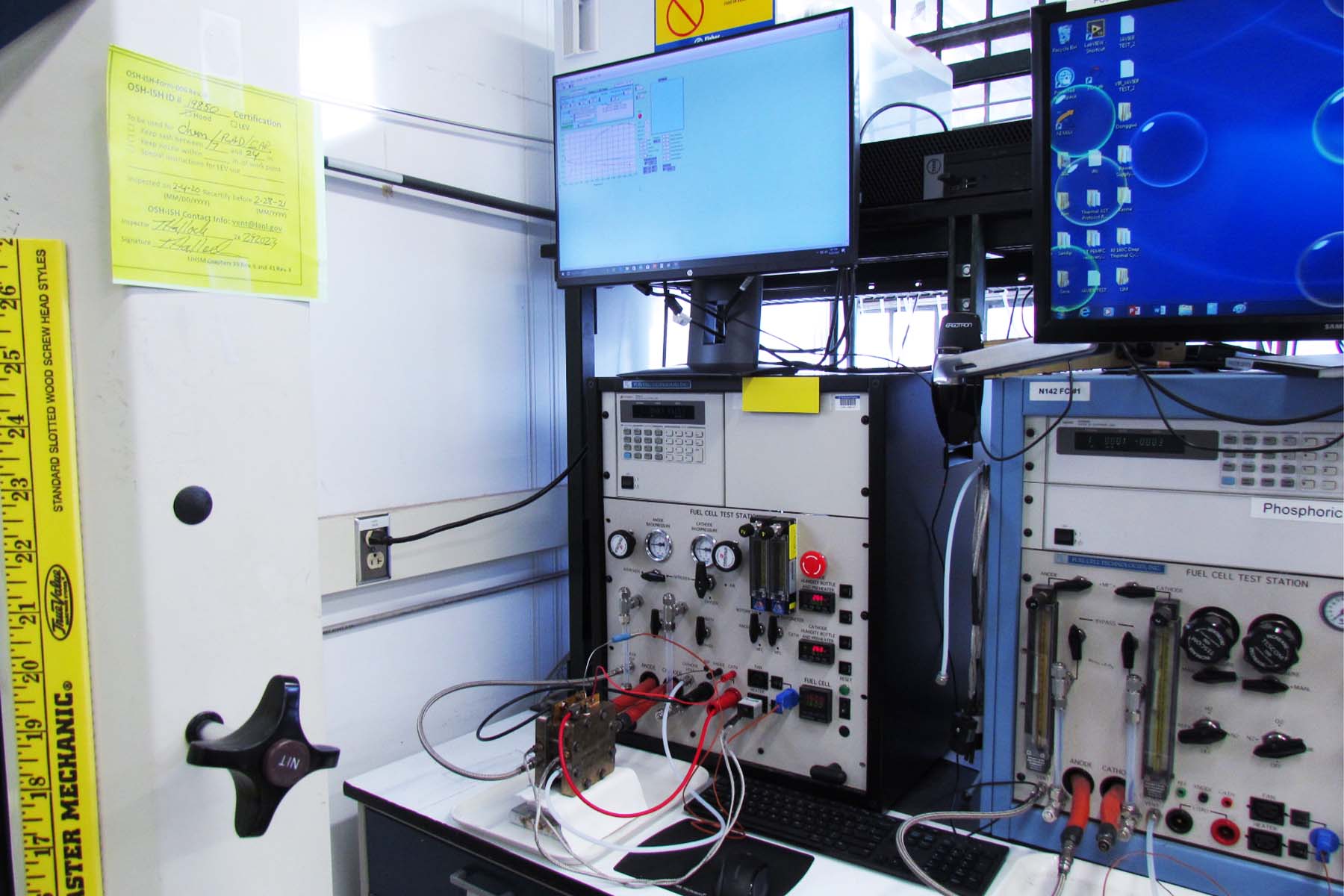Because current fuel cells operate at 60–80°C, they require large radiators and air intakes in order to stay cool enough to operate. To resolve this issue, Los Alamos National Laboratory scientists developed a new polymer fuel cell that operates at higher temperatures.
Hot and dry conditions
Over several decades, researchers have explored fuel cells that can operate above 100°C that enable simpler fuel cell systems through better heat and water management. While additional work is needed to establish the durability required for heavy-duty applications, this research provides a solution to fabricate highly performing fuel cells under hot and dry conditions.
Proton enhances conductivity
Conventional high-temperature polymer electrolyte membrane (PEM) fuel cells use phosphoric acid as an electrolyte at the electrode. In this research, the Los Alamos team designed a polymer electrolyte composed of a phosphonated polymer and a perfluorosulfonic acid. In this composite electrolyte structure, the team found that a proton from the perfluorosulfonic acid transfers to the phosphonated polymer and dramatically enhances proton conductivity. By implementing the composite polymer electrolyte, the researchers were able to achieve a nearly 800 milliwatts per square centimeter rated power density of the fuel cell at 160°C, which is a 60% improvement of the phosphoric acid-based fuel cells.






